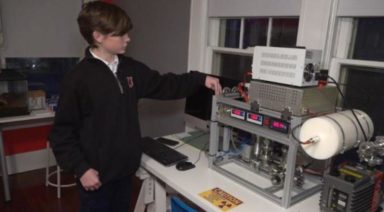4,358 New MKUltra Docs To Be Released After Crowdfunding Campaign

John Greenewald has been FOIA requesting undisclosed, government documents since he was 15 years old, having filed roughly 9,000 requests. So, when he realized a batch of documents he received regarding the CIA’s mind control project MKUltra, was missing thousands of pages, he demanded an answer. Now, after a two-year battle to acquire those documents, the CIA finally acquiesced, though it commanded a fee.
Greenewald was made aware of the documents by a Reddit user who cross-checked his cache with their original index, finding 4,358 missing. Greenewald called the CIA to request them and was unsurprisingly met with resistance.
He was told the documents contained information regarding behavioral modification and were unrelated to MKUltra. But he wasn’t convinced, so he filed another FOIA to attain them.
Typically, Greenewald can submit a fee waiver for a FOIA request, under the grounds that he is a journalist and the publication of the files is for public interest, bettering the public’s understanding of the way government operates.
But this time his waiver was denied, with the CIA requiring a payment of $425.80 for his request. Unfortunately, Greenwald couldn’t come up with the money, instead turning to a GoFundMe crowdsourcing campaign. His goal was met within five days.
The disclosure of documentation surrounding the MKUltra program is of high public interest lately, especially with the release of the Netflix docudrama Wormwood, which investigates the death of former CIA scientist Frank Olsen, who became a victim of the program.
MKUltra was a program focused on studying the potential to control the minds of unwitting subjects, often through the administration of psychoactive substances, such as LSD.
Frank Olson was one of the CIA’s own, who was unknowingly given LSD before his suspicious death, falling from the 13th story window of a New York hotel.
Greenwald’s website was one of the first publications to release the CIA’s MKUltra documents after acquiring them in 2004. Since then, they have become the most commonly searched documents of more than 2,000,000 on the CIA’s website.
It will still take some time before this missing batch of documents makes its way into Olson’s hands and is published on his website, but we look forward to seeing what else the CIA has kept hidden from the public regarding one of its most nefarious and clandestine programs.
Watch this episode of Beyond Belief, in which John Greenewald discusses his career filing FOIA requests to uncover secret government programs:
How the Soviets Weaponized EMFs During the Cold War

During the Cold War, American state department employees dreaded assignments to Moscow, known as “the sickest embassy in the world.” From the 1950s to 1979, Russians blasted the U.S. Embassy with non-ionizing microwave radiation (2.5 to 4.0 GHz), some say for 40 hours a week. According to a well-known study, “Although the [microwave radiation] intensity reaching the embassy was approximately 500 times less than the U.S. standard for occupational exposure, it was twice the highest limit allowed by the Soviet standard.” 2.5 to 4 GHz are part of the range (up to 10 GHz) that includes modern wireless networks and cell towers, radar, 4 and 5G, smart meters, and cell and cordless phones.
Dr. Paul Dart MD, a researcher studying the health effects of smart meters, noted that “The US embassy personnel had a statistically significant increase in depression, irritability, concentration problems, memory loss, ear, skin, and vascular problems, and other health problems. The longer they worked there, the worse these problems were likely to be.”




































